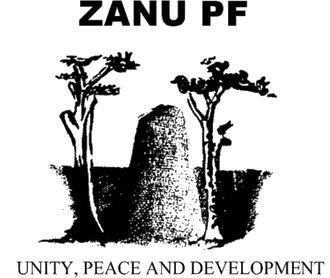HERS was not a rosy journey.
“I got diagnosed with HIV after an incident with my boyfriend in 2009 and since then I have been taking my medication,” recalls Maud Chinembiri (pictured), a mother of two.
She has lived with self-shame, self-blame as well as self-stigma, persecuting herself emotionally for contracting HIV.
“I was just finishing my college studies when I got infected. A year later, I gave birth to my first child. I went through the prevention of mother-to-child transmission programme and gave birth to a healthy baby who is turning 15 this year,” she said.
Chinembiri said she has lived a life of shame throughout her journey but that has not deterred her from realising her dreams.
“After some years, I was enrolled as a teacher at a local school in Bulawayo. I was in the teaching industry for almost four to five years and then due to self-stigma, I resigned. I felt so shameful and guilty of my status.
Keep Reading
- WhaWha triumphs in the slugfest of wardens
- Revisiting Majaivana’s last show… ‘We made huge losses’
- Edutainment mix: The nexus of music and cultural identity
- Another ETF lists on ZSE
“My health deteriorated and I got into depression. It worsened when I contracted tuberculosis.
“We then relocated to Harare because my marriage was not working for me. I had been forced into an early marriage as my family could not take that my boyfriend coerced me into a sexual act, contracting HIV in the process,” narrated Chinembiri.
Her life took a turn when, after her divorce, she moved to Harare where her aunt introduced her to a support group composed of young mothers and adolescents meant to support women on adherence and mental health issues.
“When I enrolled in this support group, I started learning a lot about HIV and how to live a healthy life. Through this support group, that's when I was introduced to a tool, the work of Byron Katie.
“I went for the 12-week course that was held by ZNNP+ [Zimbabwe National Network of People Living with HIV], under the implementer organisation called Connect Zimbabwe Institute for Systemic Therapy,” she said.
“I then enrolled for what they call the self-stigma course using the work of Byron Katie.”
The work of Byron Katie is an inquiry stress reduction tool that is used which has four questions.
There is a tool called the yellow card that helps one to question their thinking about what they are facing.
“I really needed this.
“By then, my viral load was very high, but just after the six-week course, I realised that my viral load had become undetectable. This was because all the worries, self-shame and the self-stigma that I was facing was dealt with,” she said.
She added:“This course also helped me to fight what I call blame, guilt and shame that comes with young people living with HIV. By questioning our thinking and our thoughts about being HIV positive and how we contracted it helped me to discover a lot of things.”
Unlike many people living with HIV, Chinembiri, through the courses and support group experiences, managed to gather the courage to disclose her status.
She braved the hostile perceptions associated with being HIV positive.
This has been her living testimony as she is managing her condition well.
“I disclosed my status to so many people including my family. I started doing volunteer work with so many organisations like CESSHAR and I also enrolled into a Sister2Sister programme. I am now a mentor to young people in sexual reproductive health issues,” she said.
Through volunteering, Chinembiri has gone places, giving hope to hopeless young people.
She has gained vast experience and understanding of what people like her are facing.
“This self-stigma is a universal thing, you know, it's not about people living with HIV, but people generally are shameful about so many things,” she said.
“There is a higher percentage of people living with HIV suffering from self-stigma which will affect their medication uptake seeking HIV services. Self-stigma is more powerful and affects everyone's mindset, especially people living with HIV.”
According to the National Library of Medicine (NLM), self-stigma, negative self-judgements or core beliefs — can result in feelings of shame, worthlessness and self-blame and impact social interaction, mental health and health service utilisation among people living with HIV.
“Few interventions target self-stigma among people living with HIV and, to our knowledge, none until now for adolescents and young people in sub-Saharan Africa,” NLM said in its recent report.
Self-stigma can result in non-adherence to HIV medication, lower quality of life and poor mental health.
A systematic review found that HIV-related stigma undermined anti-retroviral therapy (ART) adherence by compromising general psychological processes adaptive coping and social support) and 24 out of 33 (73%) studies reported an association between HIV stigma and ART non-adherence.





